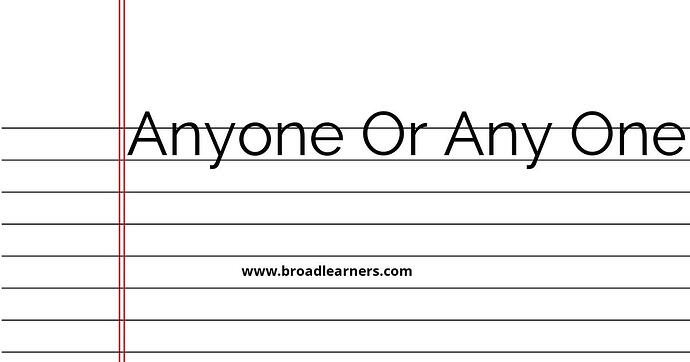'Anyone' and 'any one' are commonly confused words in English grammar. Understanding the difference between 'anyone' and 'any one' is important to use them correctly in written and spoken English.
'Anyone' is a pronoun that refers to any person, without specifying a particular individual. It is used to talk about people in general or to refer to an unspecified person.
'Any one' is a combination of the word 'any' and the word 'one'. It is used to refer to a specific individual or item out of a group.
Let's take a closer look at the meanings and usage of 'anyone' and 'any one'.
| 'Anyone' | 'Any one' |
|---|---|
| The word 'anyone' is a pronoun that refers to any person, without specifying a particular individual. | The phrase 'any one' is used to refer to a specific individual or item out of a group. |
|
|
To remember the difference between 'anyone' and 'any one', it can be helpful to remember that 'anyone' is a pronoun that refers to people in general, while 'any one' is used to refer to a specific individual or item.
Here are some examples of correct usage:
- Is anyone available to help with the project? (referring to people in general)
- Any one of these options will work for the assignment. (referring to a specific option)
- I don't have any one to talk to about my problems. (referring to a specific person)
- Anyone can participate in the event. (referring to people in general)
Remembering the correct usage of 'anyone' and 'any one' will improve your grammar and communication skills.
